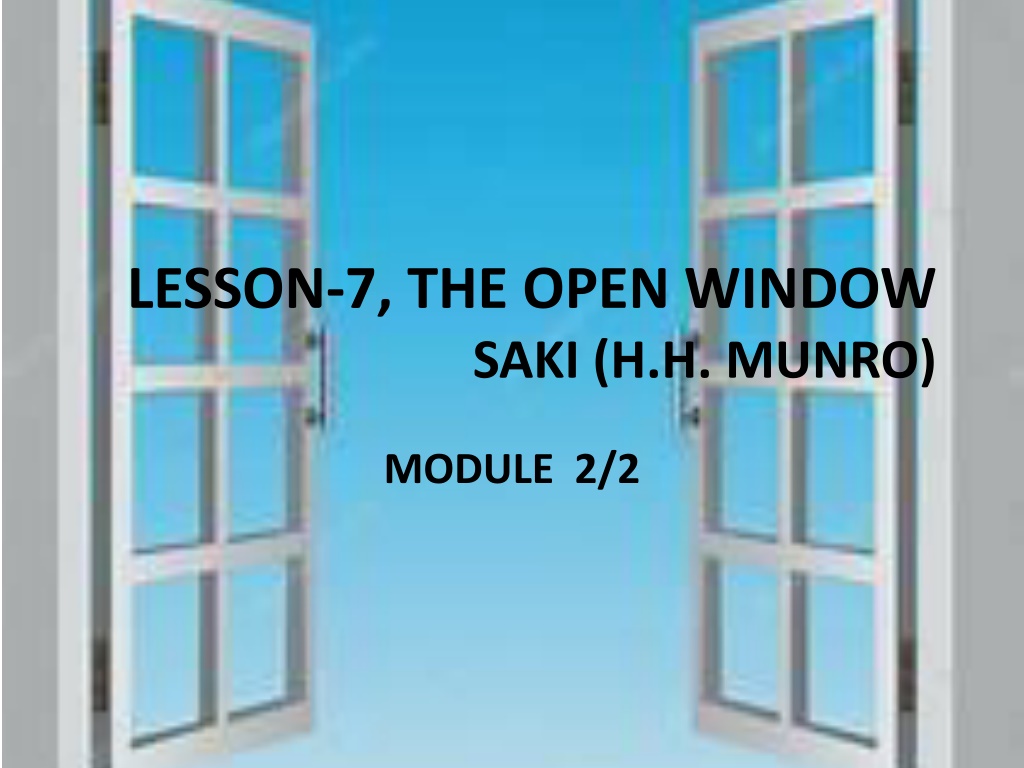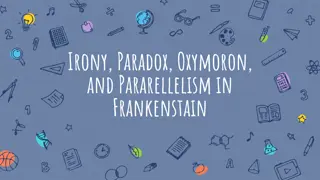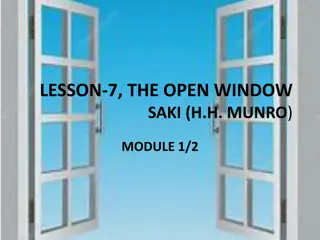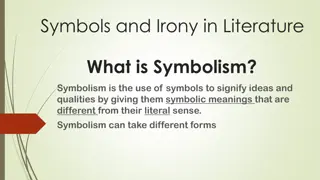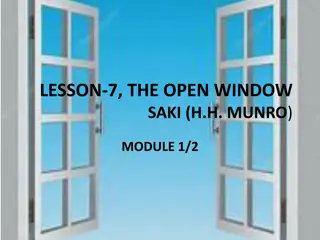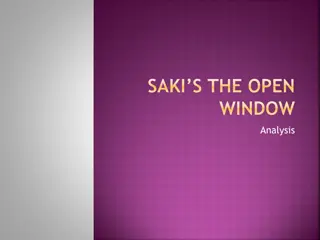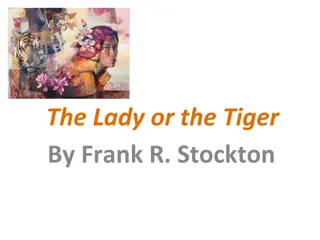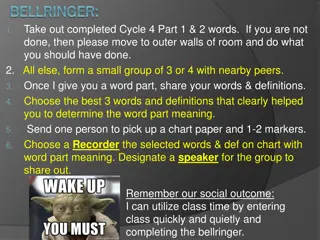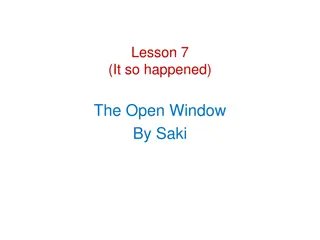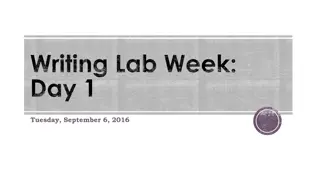Summary and Irony in "The Open Window" by Saki
Framton Nuttel, seeking peace in the countryside, encounters a series of unsettling events at his friend's home. The niece spins a tale about the open window, leading to a chilling twist that heightens Framton's anxiety. Irony weaves throughout the narrative as the supposedly tranquil setting exacerbates his nervousness. This classic short story by Saki delves into themes of perception, reality, and unexpected outcomes.
Download Presentation

Please find below an Image/Link to download the presentation.
The content on the website is provided AS IS for your information and personal use only. It may not be sold, licensed, or shared on other websites without obtaining consent from the author. Download presentation by click this link. If you encounter any issues during the download, it is possible that the publisher has removed the file from their server.
E N D
Presentation Transcript
LESSON-7, THE OPEN WINDOW SAKI (H.H. MUNRO) MODULE 2/2
RECAP OF MODULE 1 1. Framton Nuttel has bad nerves. 2. He retires to the country for cure, and calls on a family friend. 3. The lady being busy upstairs, her young niece refers to a family mishap, focusing especially on the open window.
KEYPOINTS OF THE STORY 1. While Vera was narrating to Framton the story related to the open window, Mrs. Sappleton arrived. She said that her husband and brothers would be back home through that window as they always did. 2. Framton felt sorry for the lady and tried to change the topic by talking to her about his ailment. 3. Mrs. Sappleton kept on telling him about her husband, brothers and the spaniel.
4. Horrified, Framton tried his best to change the ghastly topic, but got no relief. Soon Mrs. Sappleton announced, They have arrived at last. Don t they look as if they were muddy up to the eyes . 5. Numbed by a sense of fear, Framton swung round in his seat and looked towards the open window. He noticed three figures along with a dog, walking across the lawn towards the window. They looked exactly the same as described by the niece.
6. Terrified, he grabbed his stick and hat and rushed out of the room wildly. 7. Vera immediately invented a new story to explain the reason for Framton s sudden departure.
8. She told her aunt that Framton had got frightened at the sight of the spaniel, as he had a horror of dogs and that explained why he rushed out of the house. She further said that Mr. Framton himself told her that he was terribly frightened of the dogs. Once a group of dogs chased him into a graveyard. He had spent the night in a newly-dug grave. The dogs were growling all around him. Ever since, he had that abnormal fear of dogs.
IRONY IN THE STORY Irony is a situation in which there is a contrast between expectations and reality. 1. Framton Nuttel retreats to the countryside in order to recover from a bout of nervousness. Ironically, the countryside only adds to his anxiety and Framton is thrown into another nervous fit when he believes he has seen ghosts.
2. The irony in the story is the open window itself. The open window is a symbol of honesty, yet it is used by Vera to deceive Mr. Framton Nuttel with the story of Mrs. Sappleton s lost husband and brothers who supposedly left through the window and never returned.
